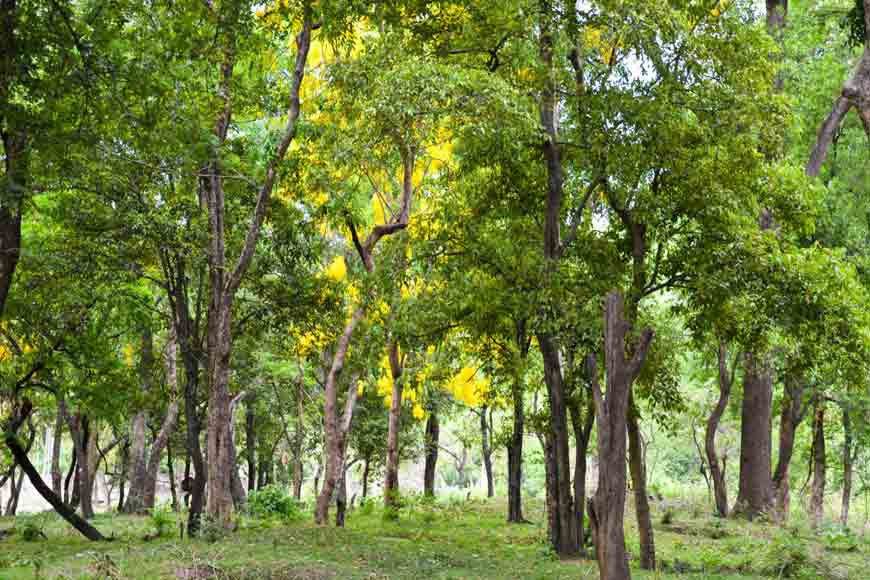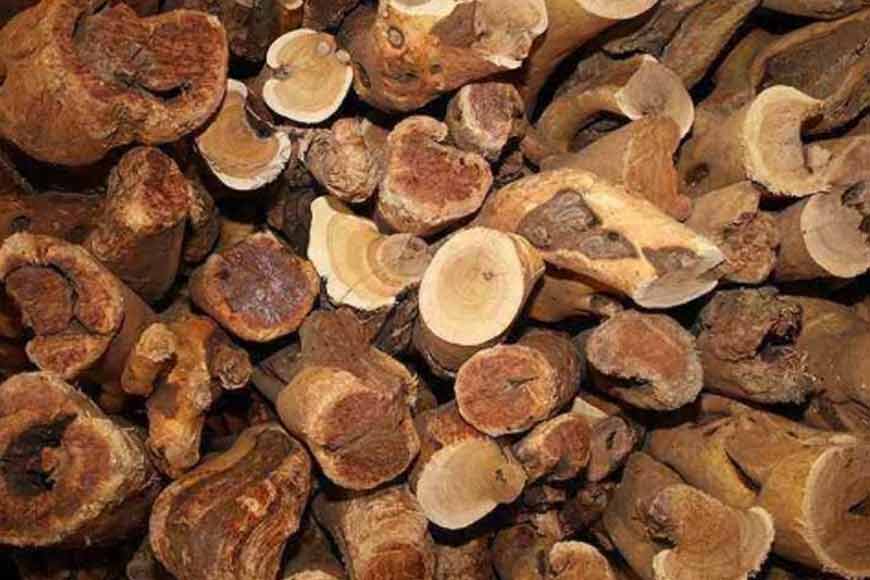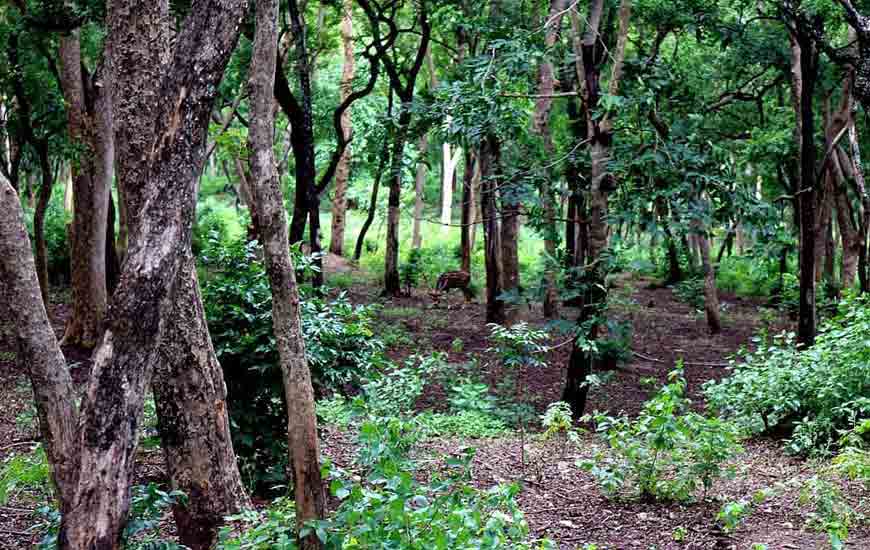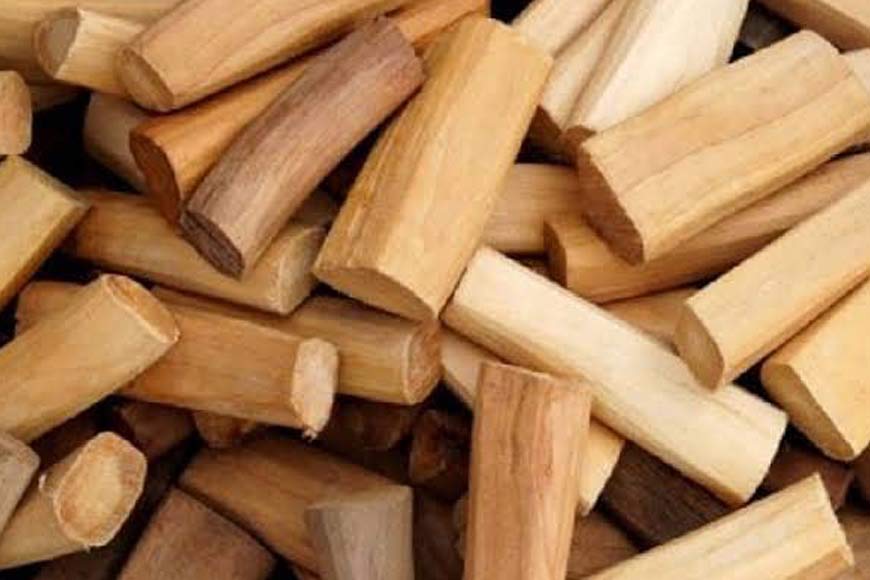State govt. plans pocket gardens of sandalwood trees across Kolkata

State government to set up pocket gardens of sandalwood trees across Kolkata
Santalum album aka chandana in Sanskrit, is a valuable tree and has been part of Indian culture and heritage for thousands of years. It was one of the first items traded with other countries and is the second most expensive wood in the world. The heartwood of the tree is treasured for its aroma and is one of the finest natural materials for carving. Sandalwood has been revered for its medicinal and aromatic properties for thousands of years stretching back to a time of ancient kings and cultures. Traditionally sandalwood was burned as incense in Hindu and Buddhist ceremonies and carved into deities' sculptures. It is widely used in perfumes, cosmetics, aromatherapy and pharmaceuticals.
 Sandalwood, one of the most expensive woods in the world
Sandalwood, one of the most expensive woods in the world
In a recent move, the West Bengal Forest Department has initiated a plan to develop pocket gardens of sandalwood trees in different parts of the city, and sandalwood forests across the state. Plans are afoot to set up urban forest pockets or ‘Nagar Vatika Vans’ in and around the city where 10-hectare plots are available. The state forest department has received the government approval to go ahead with the project and are planning to import around one crore sandalwood saplings from South India.

Meanwhile, a team of experts is being formed that will visit the districts to conduct detailed surveys and soil tests and finalize the areas that would be suitable for sandalwood plantation. The project will be implemented under the Sabujshree Scheme initiated by the state Chief Minister, Ms Mamata Banerjee in 2016. This is a collaborate effort of the Department of Forest, Panchayat and Rural Development and Health and Family Welfare. Under it, each new born baby in the State shall be gifted the sapling of a tree that is to be planted by the family on their own land. The scheme aims to ensure a measure of financial security to each child and increase the green cover in the state.
The state Forest Minister Jyotipriya Mallick is optimistic and insists that if the Southern states can develop and expand sandalwood plantation, it can be replicated in West Bengal as well. Once the saplings are planted, the state government plans to take adequate measures to protect the trees and construct fences to secure their growth. The ministry has sought permission from Fort William, the Headquarters of the Eastern Command Army, to develop a patch in the Maidan area off Red Road with sandalwood trees.
In India, sandalwood is found in the dry deciduous forests of Deccan Plateau, mostly in the states of Karnataka and adjoining districts of Maharashtra, Tamil Nadu, Kerala and Andhra Pradesh. The evergreen tree regenerates naturally when conditions are favorable and has been spreading in its distribution. In the wild, it takes at least 7 years for a sandalwood tree to start producing scented heartwood. Most sandalwood trees are left to mature for at least 15 to 20 years before they are harvested, which allows the valuable heartwood to grow to a larger size. Sandalwood trees are hemi-parasitic, meaning they can only grow when attached to a suitable host tree, which they rely on for water and nutrients. The roots, as well as the trunk are valuable, so a sandalwood tree is usually uprooted when it comes time for harvest, with additional processes to separate the sandalwood from the wood of its host tree.
 Sandalwood Sticks
Sandalwood Sticks
But, what exactly is sandalwood and what makes it so precious? The term ‘sandalwood’ refers to several species of trees, genus name Santalum. Of the many varieties of sandalwood, Indian sandalwood is the most prized one and holds the highest concentration of A-santalol and B-santalol, the chemical compounds responsible for sandalwood’s luxurious woody-floral scent. It’s B-santalol that also makes Indian sandalwood essential oil a powerful antiseptic. Santalol album is recognized as a "vulnerable" species by the International Union for the Conservation of Nature (IUCN). It is threatened by over-exploitation and degradation to habitat through altered land use, fire, Spike disease, agriculture, and land-clearing.











